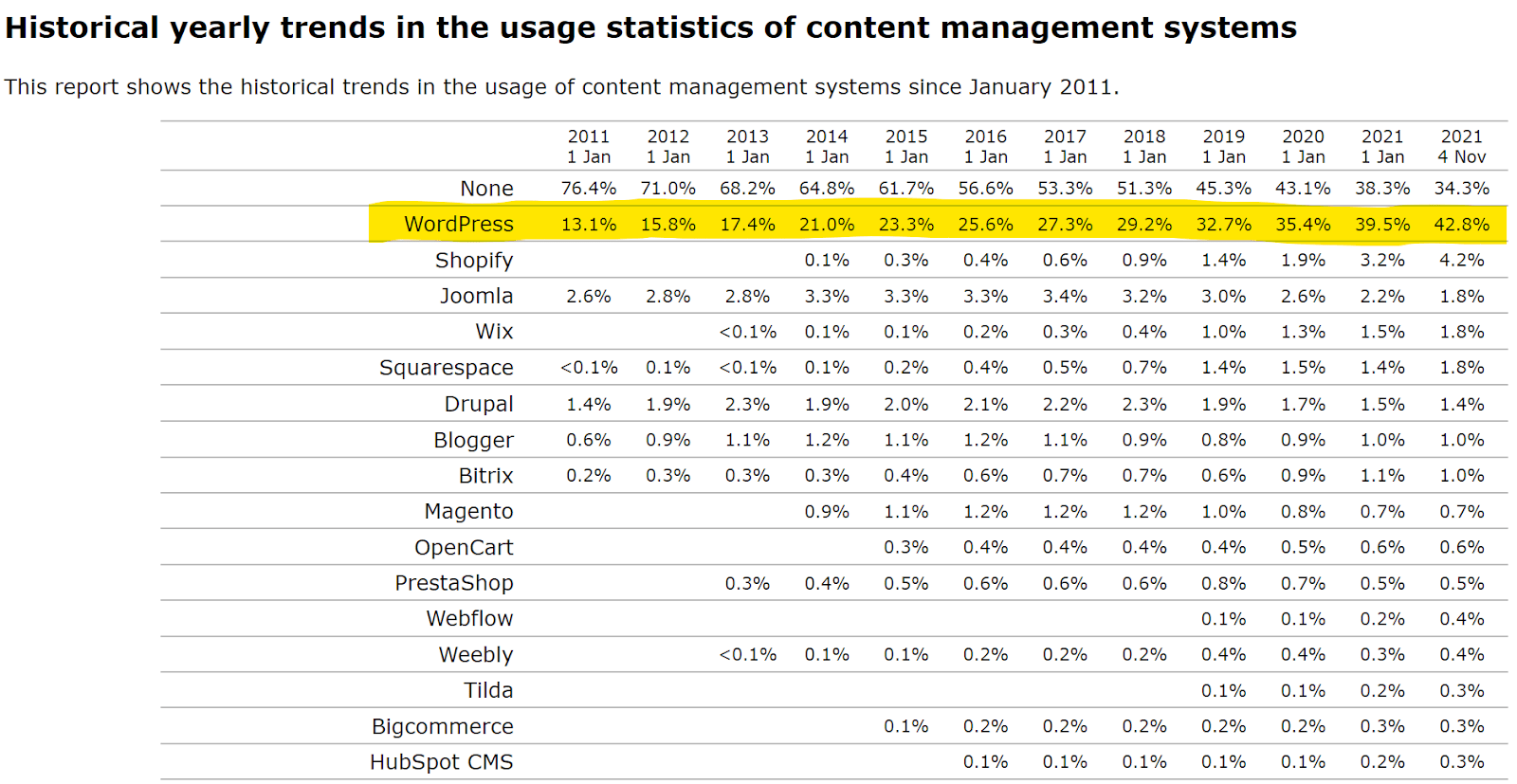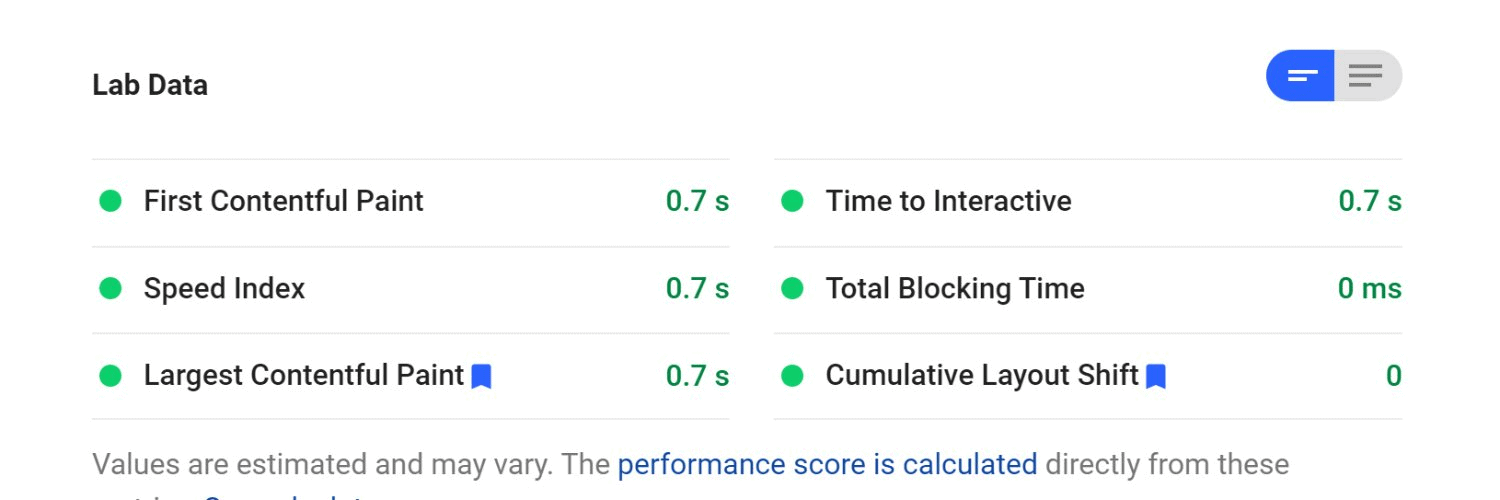Before we dive into the merits of WordPress specifically, let’s start with why it is practically a requirement to use a Content Management System for your marketing site. We often get asked why the marketing site can’t live on the same platform as the product/app site, and why it can’t be managed by the same folks who build and maintain those systems.
The main reason is speed of execution. Traditional developers and engineers, of the stripe that are likely building and maintaining your SaaS product, tend to have fairly strong opinions when it comes to tech stacks, and these preferences overwhelmingly tilt to trading extra complexity in exchange for developer-friendly tooling. This is fine for folks who are already very tech savvy, but it does tend to mean that they are the only ones who can make changes to the system. Given finite developer bandwidth, when deciding whether to prioritize product improvements or tackle change requests from marketing, you can guess which tasks get left by the wayside.
By decoupling the marketing site from the product, we can opt for systems that strike a balance between ease of use for the laypersons such as your writers, designers, and pr folks – with the technical flexibility needed by your SEO and data analysts. This will allow for rapid iteration of your marketing efforts, without the need to rope in engineering for every little change. That ability to move fast will drastically improve the efficiency of your marketing efforts. Efficiency is critical when dealing with highly competitive niches, especially when up against competitors who either had a head start, more funding or both.
The Case for WordPress
Now that we’ve established why you need a CMS – let’s talk about why, for 95% of businesses, the only rational choice is WordPress. We’ll start with the obvious – market share. Thanks to being both free and open source, WordPress is, by a very wide margin, the most popular and widely used content management system. As of this writing WordPress powers just over 42% of all websites on the internet.

Of those sites who’s CMS is known, WordPress accounts for a whopping 65%. By way of comparison, the next closest competitor, Shopify, has less than 5% market share. On a related note – much noise has been made of late about website builders like Wix, Squarespace and Webflow, but their combined market share is a paltry 4%.
But why does this matter? The reason is simple – mindshare. By virtue of being the most popular, there are drastically more developers, writers and editors who are familiar with WordPress than any other system. That means not only are more people able to jump right in and use it, but also there is a much larger ecosystem of training, tooling, plugins and themes available for it. And with it being open source, it also means there are significantly more developers contributing to the core system, bringing new features to market faster, as well as quickly tackling bugs and security issues which impact all software.
The TL;DR here is that the popularity of WordPress vs other platforms is going to save you money. Whether you need an off the shelf plugin or custom development to extend the functionality of your site, or need to find an SEO or content editor who is familiar enough with your site’s backend to make changes without mucking things up – there are just more options available.
That brings us to the second, and maybe more important, reason to choose WordPress. Balancing ease-of-use with extensibility and control. Unlike managed drag-and-drop site builders such as Webflow or Hubspot – which focus nearly universally on ease-of-use – WordPress is free, open source, and self hosted.
This is important because it means that when you do need the flexibility to go in there and change something beyond the constraints of the core software – you can. You aren’t stuck hoping that whatever feature or bug fix that’s holding back your business or marketing efforts happens to bubble to the top of Wix’s to-do list. Simple enough to move fast, but flexible enough to build anything you need – on your schedule.
Additionally, most of what you give up by not going with a managed site builder like Squarespace, you can actually get back by pairing WordPress with a managed WordPress hosting service such as Kinsta, WP Engine, or Flywheel. You can even add drag-and-drop design functionality similar to that of Webflow through WordPress’s own project Gutenberg or third party plugins like Elementor.
Once again, all of this has the power to save you money. By decoupling hosting from your CMS, and your CMS from your eCommerce solution or payment processor, you are able to choose and negotiate pricing for each of those components separately. This compared to Shopify or Webflow leveraging your site’s CMS to elbow in with transaction fee percentages or gating functionality behind higher tier traffic plans. If, for whatever reason, you ever become unhappy with your hosting provider, it is simple to take your whole WordPress site and move it elsewhere. Ditto with changing payment processors or ecommerce solutions. Things that are simply impossible with the likes of proprietary all-in-one solutions mentioned above without a full rebuild.
All of these factors combine to make WordPress the right choice for the vast majority of businesses. It is why – despite some designers complaining it is too technical compared to pagebuilders like webflow, and full-stack developers grumbling that it is not as robust or modern as their single page applications with javascript frameworks, build pipelines and complex containerized orchestrations – you will hear constant recommendations for it from SEOs, marketers and anyone else who is involved in looking at the big picture for your business. It is the only platform that is both popular enough to have a solid developer ecosystem and broad familiarity, while also striking the right balance between ease-of-use and extensibility/scaling concerns.
A Note on Performance
One of the arguments against WordPress we often hear brought up is that it can be rather slow, or that it doesn’t scale well. While this certainly can be true, it’s often a matter of the hosting and configuration choices you make. WordPress can be made to be extremely performant.
There is nothing about WordPress or its underlying technologies (PHP, MySQL) that inherently prevent it from being lightning fast. But, because WordPress is highly configurable, it’s easy for people who don’t know what they are doing to bog it down with unnecessary cruft, and it’s also possible to go cheap on hosting to the same effect.
However, we are able to mitigate this by choosing a high performance managed host (our preference is Kinsta) and pairing that with a CDN like cloudflare, best practice theme development, configuration, plugin selection and image optimization. This delivers fantastic results for all but the most demanding of sites.
For sites at the very extreme end of performance needs, you can still use WordPress as a headless CMS, providing a familiar backend to all of your content people, and then pair it with a static site generator on the front end like Gatsby, NextJS or WP Engine’s Atlas. This arrangement can easily serve tens of thousands of concurrent users if cached and balanced across containers.